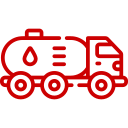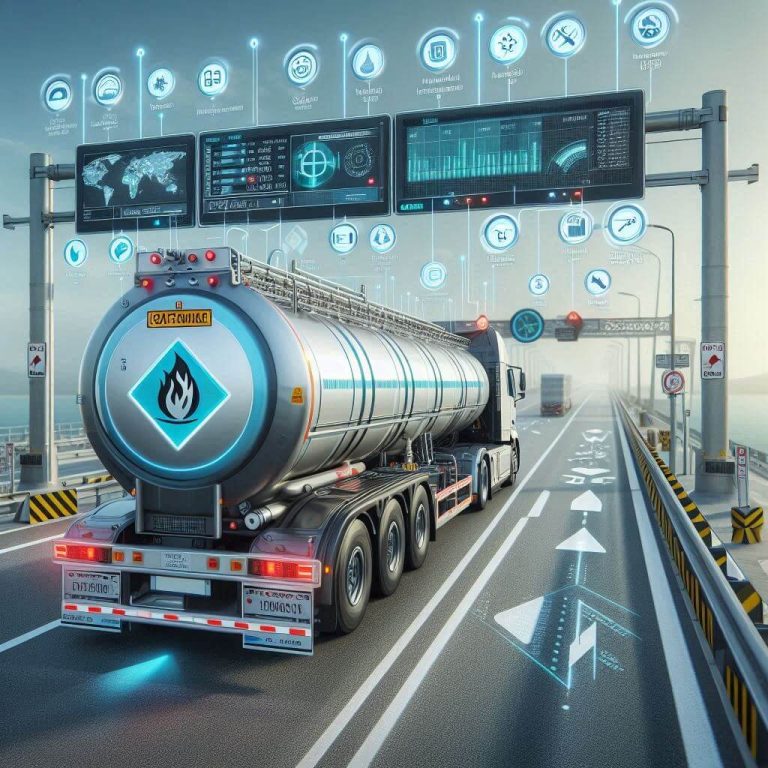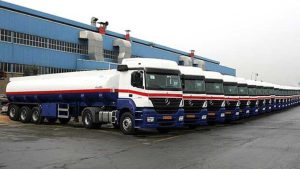تحلیل تطبیقی استانداردهای بینالمللی با مقررات ملی ایران
با تأکید بر نقش تخصصی شرکت نفتکشداران هرمزگان
حملونقل جادهای فرآوردههای نفتی یکی از حساسترین و پرریسکترین بخشهای لجستیک سوخت در جهان است. حفظ ایمنی، پایداری زیستمحیطی و اطمینان از سلامت شبکه تأمین انرژی، مستلزم رعایت دقیق استانداردها و الزامات فنی در این حوزه است. در سطح بینالمللی، نهادهایی مانند کمیسیون اروپا (ADR) و اداره ایمنی حملونقل فدرال ایالات متحده (FMCSA)، چارچوبهایی جامع برای حمل مواد خطرناک از جمله سوخت ارائه دادهاند. در ایران نیز سازمان ملی استاندارد و وزارت راه و شهرسازی مقرراتی را در این زمینه تدوین کردهاند. در این مقاله، به بررسی تطبیقی این استانداردها پرداخته و جایگاه تخصصی شرکت نفتکشداران هرمزگان در رعایت و اجرای این الزامات بررسی میگردد.
۱. استاندارد ADR اروپا
ADR (Accord Dangereux Routier) پیمانی بینالمللی است که توسط کمیسیون اقتصادی اروپا تدوین شده و حمل جادهای مواد خطرناک را در کشورهای عضو اروپا و برخی کشورهای آسیا و خاورمیانه تنظیم میکند.
مهمترین ویژگیهای ADR:
دستهبندی دقیق مواد خطرناک
الزامات ایمنی برای خودروها (نظیر تانکرهای فشار بالا، سیستم قطع خودکار، دریچه اطمینان و …)
آموزش رانندگان و کارکنان طبق سرفصلهای بینالمللی
برچسبگذاری، کدگذاری و مدارک همراه الزامی
ADR با تأکید بر پیشگیری از نشت، آتشسوزی و تصادف، پایهگذار حمل ایمن در جادهها است و به طور منظم بهروزرسانی میشود (هر دو سال یکبار).
۲. استاندارد FMCSA آمریکا
اداره ایمنی حملونقل فدرال (FMCSA) در آمریکا مقررات سختگیرانهای برای حمل مواد خطرناک تدوین کرده است. این مقررات بخشی از کد فدرال (CFR) بوده و شامل موارد زیر است:
بازرسی روزانه و دورهای ناوگان
الزام استفاده از رانندگان آموزشدیده با گواهینامه تخصصی (Hazmat Endorsement)
رعایت ساعات کار مجاز برای جلوگیری از خستگی راننده
مستندسازی کامل بار، مسیر، و تجهیزات ایمنی اضطراری
FMCSA بر نظارت دیجیتالی، پایش برخط و تطابق سیستمی بین ناوگان و مسیر تأکید دارد.
۳. مقررات ملی ایران
در ایران، استاندارد ملی ۳۶۹۲ و همچنین آییننامههای سازمان راهداری، سازمان ملی استاندارد، و وزارت نفت چارچوبهایی را برای حمل فرآوردههای نفتی ارائه میکنند. برخی ویژگیها:
ساخت و بهرهبرداری از مخازن تحت نظارت استاندارد ملی
الزام اخذ کارت هوشمند سوخت و مجوز بارنامه
آموزش رانندگان از طریق مؤسسات تاییدشده
بیمهنامههای مسئولیت و ایمنی الزامی
با این حال، نقاط ضعفی در نوسازی ناوگان، آموزش مستمر، و نظارت بر اجرا در برخی مناطق دیده میشود که مقایسه آن با ADR و FMCSA میتواند بهبودهایی را رقم بزند.
۴. نقش تخصصی شرکت نفتکشداران هرمزگان
شرکت نفتکشداران هرمزگان، با تکیه بر دانش فنی و تعهد حرفهای، همواره در اجرای اصول ایمنی و الزامات فنی حملونقل سوخت پیشگام بوده است. برخی از اقدامات شاخص شرکت در این راستا عبارتند از:
بهکارگیری ناوگان مجهز به سامانههای پایش برخط، دریچههای اطمینان و عایقهای ضدنشت
آموزش مستمر رانندگان و کارکنان عملیاتی با محتوای منطبق بر سرفصلهای ADR
تهیه و استفاده از اسناد حمل استاندارد، ثبت GPS و تطابق با مسیرهای ایمن
همکاری با نهادهای ناظر از جمله سازمان استاندارد، پلیس راهور و شرکت ملی پخش
این اقدامات، شرکت نفتکشداران هرمزگان را در جایگاه الگویی از عملکرد ایمن، مسئولانه و منطبق با استانداردهای جهانی در سطح ملی قرار داده است.
نتیجهگیری
تطبیق استانداردهای بینالمللی حملونقل جادهای سوخت با چارچوبهای ملی، نه تنها موجب کاهش ریسکهای عملیاتی، زیستمحیطی و اقتصادی میشود، بلکه مسیر را برای ارتقاء کیفیت خدمات لجستیکی در کشور هموار میسازد. شرکت نفتکشداران هرمزگان با رویکردی مبتنی بر ایمنی، دانش فنی و انطباقپذیری، گامهای مؤثری در تحقق این آرمان برداشته است.
کلمات مرتبط:
استاندارد حمل سوخت، حمل جادهای فرآورده نفتی، استاندارد ADR، FMCSA، شرکت نفتکشداران هرمزگان، ایمنی حمل سوخت، مقررات حمل مواد خطرناک، لجستیک سوخت ایران
منابع:
1.European Agreement concerning the International Carriage of Dangerous Goods by Road (ADR), UNECE
2.FMCSA – Hazardous Materials Regulations (Title 49 CFR)
3.استاندارد ملی ایران ۳۶۹۲، سازمان ملی استاندارد
4.مقررات حمل مواد خطرناک، سازمان راهداری و حملونقل جادهای
5.گزارشهای داخلی شرکت نفتکشداران هرمزگان












